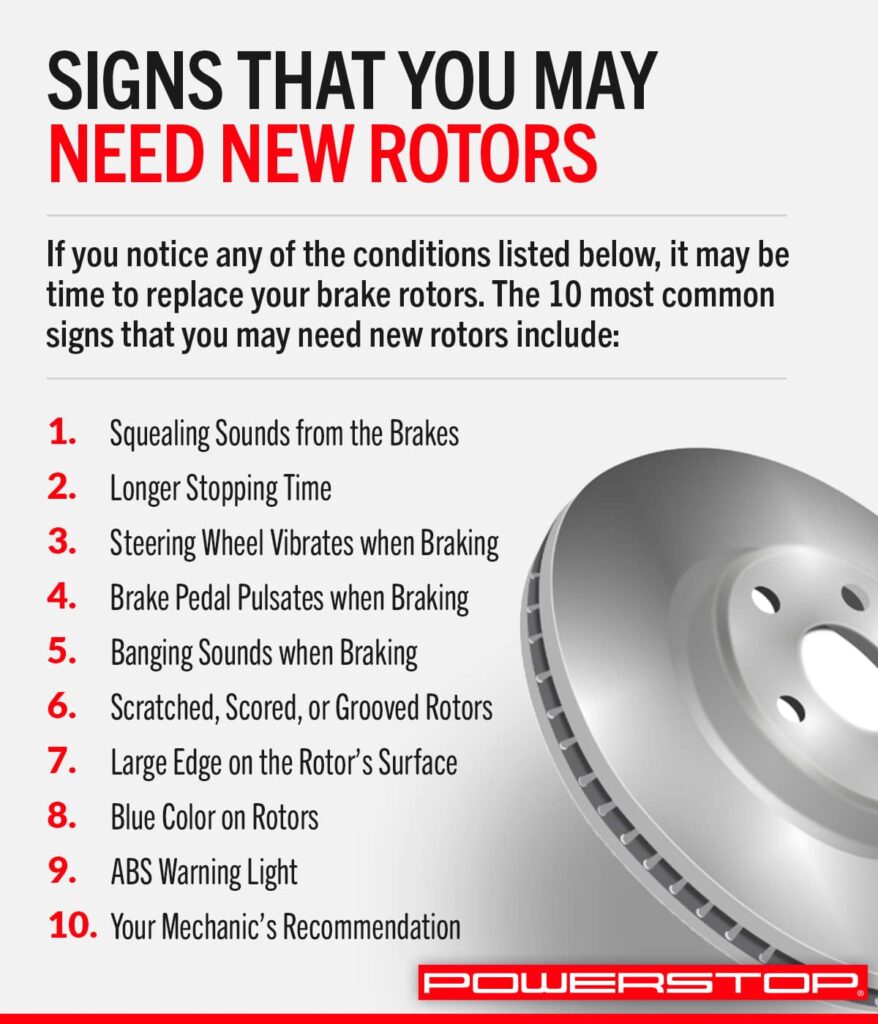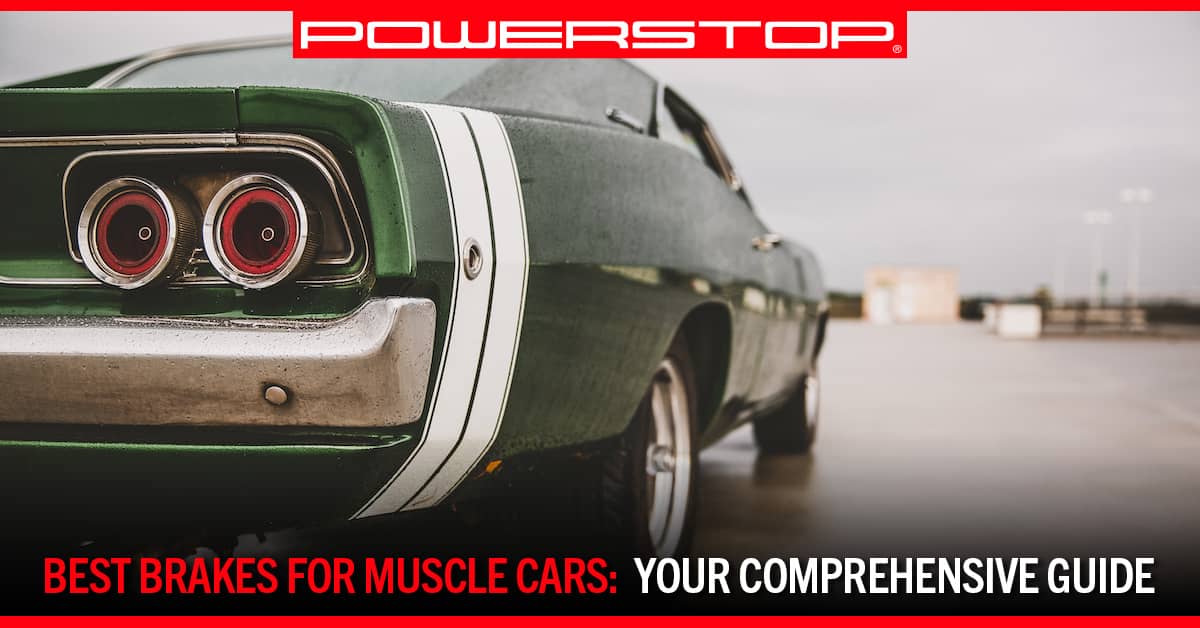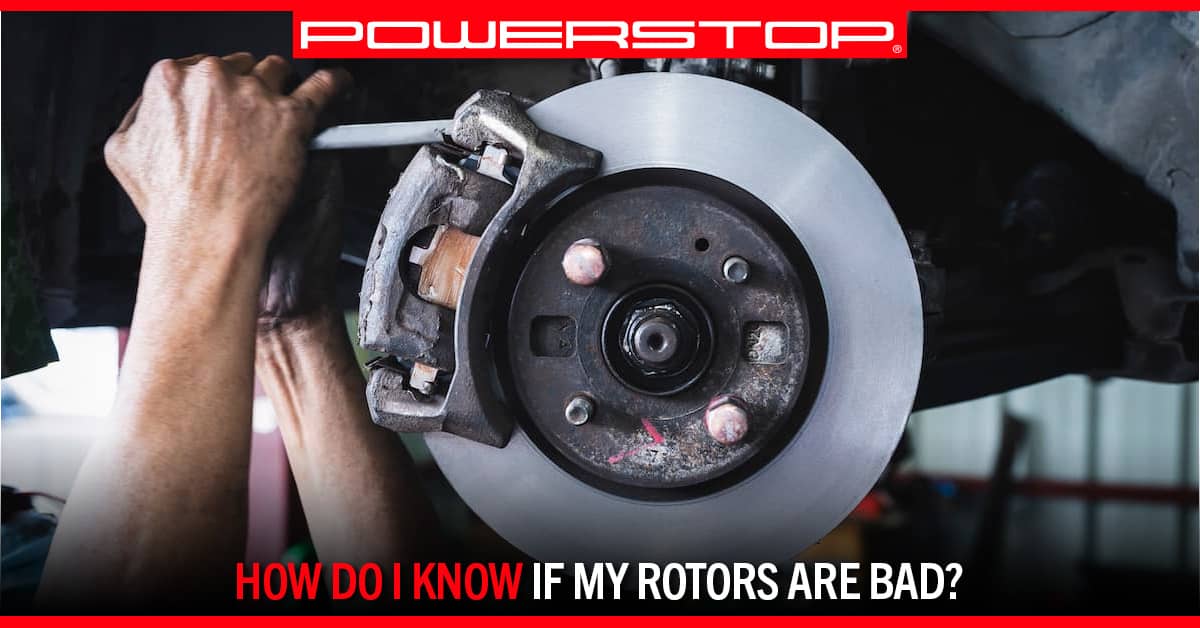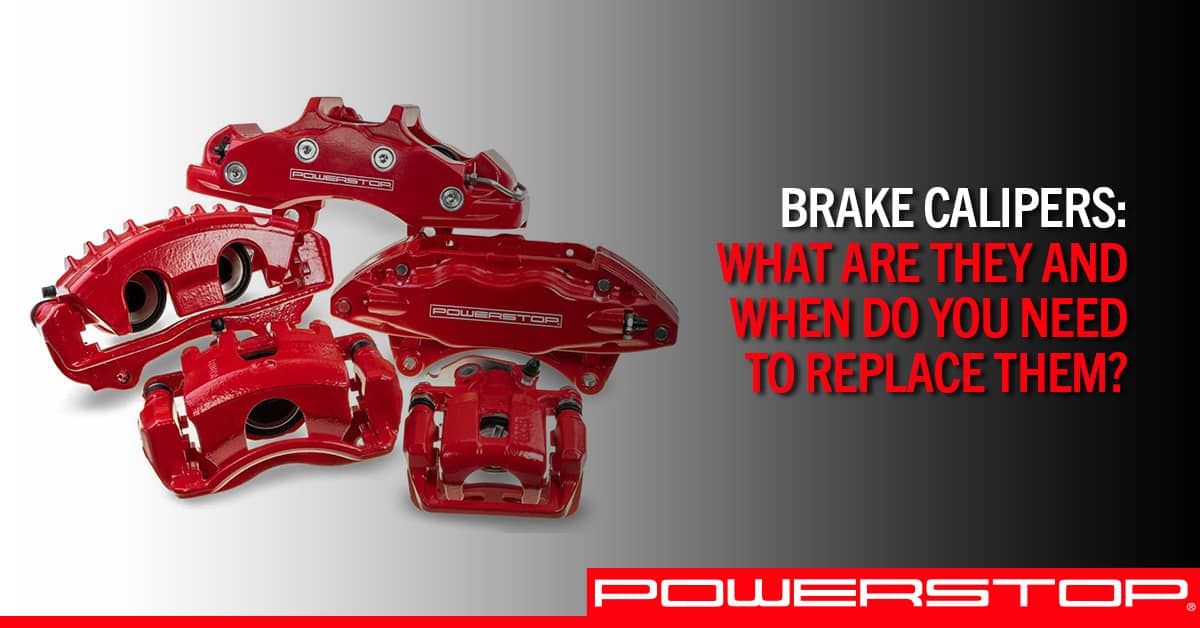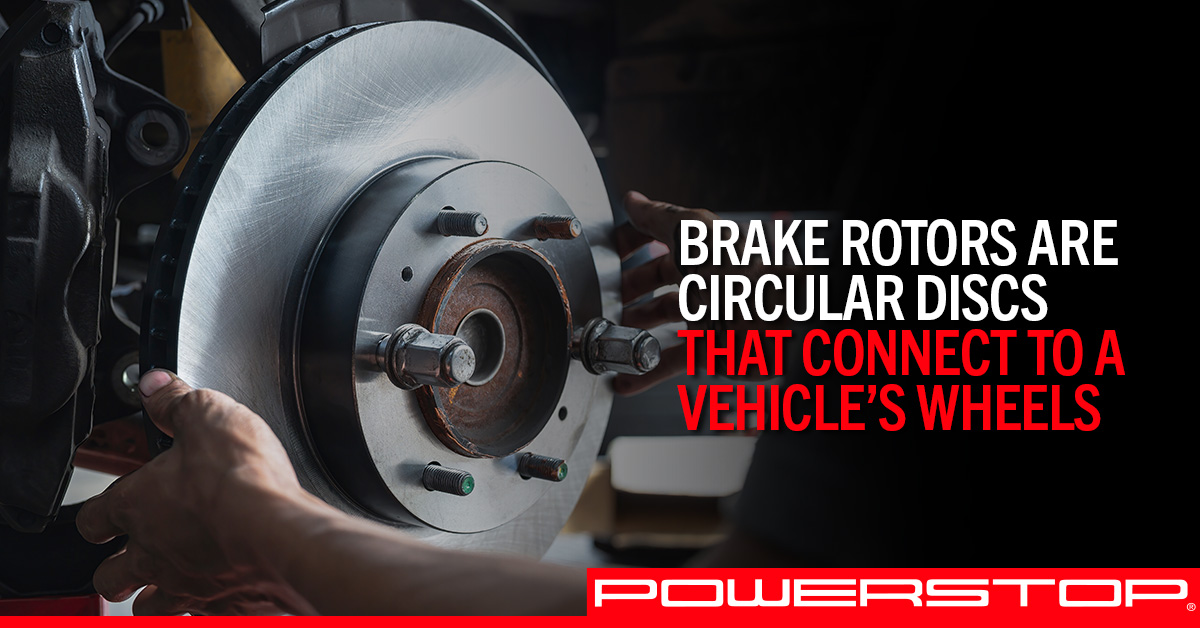
Brake rotors Are Circular Discs That Connect to a Vehicle’s Wheels
When you press down on the brake pedal, brake fluid transfers the pressure on the pedal to the calipers, causing them to squeeze your brake pads against the surface area of the rotors. The friction created by the pads pressing against the rotors slows the wheel’s rotation and stops the vehicle’s movement.
New rotors have smooth and even surfaces. Over time, rotors can lose their smooth finish. Worn rotors increase stopping distances and diminish braking performance, creating a dangerous situation.
It’s crucial to know when you need new rotors. In this PowerStop guide, we discuss the common signs that indicate it’s time to replace your rotors and the consequences of failing to get new rotors when you need them. First, we’ll explain the importance of understanding brake rotor thickness and why it matters to your braking performance.
What Is Brake Rotor Thickness and Why Does It Matter?
Brake rotor thickness is a crucial measurement for your vehicle’s safety. It is important to know your vehicle’s minimum brake rotor thickness because if the rotor is thinner than the minimum thickness, it can be dangerous to operate. Thinner rotors are lighter in weight and less able to absorb and dissipate heat. The brake rotor’s strength is also reduced when it is thinner than the minimum level, which can lead to increased risks of cracking or brake failure.
Where Do I Find My Minimum Rotor Thickness?
Looking to machine/cut your brake rotors or worried they’ve worn too far? You’ll need to know the minimum thickness. The rotor’s minimum thickness tells you the minimum operational level of your rotor. This level can be found engraved on the sides of the rotor, within the veins of the rotor, or on the hat of the rotor.
To measure your rotor’s minimum operational thickness, place a micrometer at the thinnest point on the rotor’s surface where it meets the brake pads. If your rotor has worn past this thickness or needs to be cut, you need new rotors.
Your rotor may exhibit signs of Disc Thickness Variation (DTV). This term describes the variation in thickness of the disc rotor braking surface as it rotates on the axle. DTV could indicate a more serious problem within your braking system.
When Should I Check Brake Rotor Thickness?
Whenever you check your brake pads, it’s essential to check the rotor thickness as well. If the thickness of your brake rotor is less than the minimum specification and it cannot be resurfaced, you should replace the rotors right away.
It is a good idea to check your brakes every 10,000 miles or whenever you replace brake pads. You may need to have your brakes checked sooner if your brake pedal vibrates when you step on it, or if you notice your brakes beginning to squeal or pull to one side. Proper maintenance will ensure that your rotors have enough metal left for safe braking.
We recommend replacing both rotors at the same time, even if one still works, because the difference in rotor thickness can cause the brakes to pull toward one side.
10 Common Signs That You May Need New Rotors
If you notice any of the conditions listed below, it may be time to replace your brake rotors. The 10 most common signs that you may need new rotors include:
- Squealing sounds from the brakes
- Longer stopping time
- Steering wheel vibrates when braking
- Brake pedal pulsates when braking
- Banging sounds when braking
- Scratched, scored, or grooved rotors
- Large edge on the rotor’s surface
- Blue color on rotors
- ABS warning light
- Your mechanic’s recommendation
How Do Brake Rotors Wear Out?
Brake rotors can wear out for a number of reasons, such as:
- Axle position: Front axles often bear more weight than rear axles. When this happens, it means that the front bears more of the braking load. This can cause front rotors and pads to wear out more quickly than rear rotors.
- Vehicle weight: The heavier the vehicle, the quicker its rotors and pads are likely to wear down.
- Driving style and environment: Aggressive driving and extreme weather environments such as frigid winter cold or excessive summer heat can cause quicker rotor wear.
- Brake pad quality: Cheap pads or pads that are not properly installed can cause rotor damage.
- Brake rotor characteristics: Heat dissipation capacities can affect rotors differently, depending on whether they are solid, drilled, slotted, or vented.
- Quality standards: The materials and quality control standards implemented in a brake rotor’s manufacturing, treating, and distribution processes can all affect the longevity of a rotor.
What Happens If Bad Rotors Are Not Replaced?
The longer you wait to replace worn or damaged brake rotors, the more problems you will see down the road. Your rotors and your brake pads work together, so a damaged rotor will eventually damage the pads and possibly the calipers as well.
Wearing past the minimum thickness level can lead to other problems, resulting in the need to replace other components of the braking system.
Essentially, if you fail to replace rotors when it’s necessary, it can cause a cascade effect, damaging your entire braking system.
Most importantly, bad rotors put your safety, and the safety of those with whom you share the road, in danger. You can’t risk your safety, or the safety of other drivers and pedestrians by not caring for your vehicle properly. The moment you notice your brake rotors are malfunctioning, you need to correct the problem.
Need New Brake Rotors?
In this article, we’ve explained the importance of understanding and identifying minimum rotor thickness and the top 10 signs that you may need to replace your rotors. If, based on this information, you find that it is time to replace your rotors, we recommend our stock replacement rotors or upgrading to PowerStop Drilled & Slotted rotors. Our Drilled & Slotted rotors are zinc-plated and designed to keep your brake temperatures down, and performance up.
Have a Question? PowerStop Can Help
PowerStop strives to provide top-quality performance brakes for every vehicle on the road. If you have questions regarding any of our products, contact us today online or toll-free at (888) 863-4415. Our customer service team is available to answer your questions Monday through Friday from 8 a.m. to 5 p.m. (CST). Se habla español.
Back

